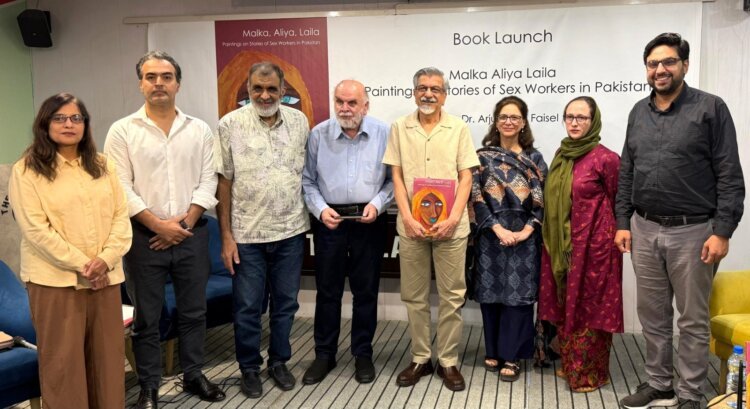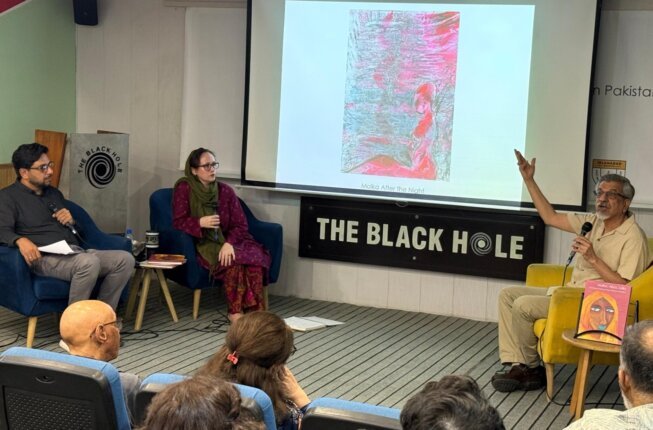Dr. Arjumand Faisel’s new book blends art and public health to humanize sex workers in Pakistan
Islamabad, September 15, 2025 – The launch of “Malka Aliya Laila: Paintings on Stories of Sex Workers in Pakistan” at The Black Hole turned into an evening of emotion, art, and social reflection. Organized by Gallery 6 with the East-West Center Alumni Association – Islamabad Chapter, the event brought together artists, writers, academics, and students to witness an unusual convergence of public health, visual expression, and the lived experiences of marginalized women.
The session was moderated by senior journalist Faiz Muhammad Paracha, Secretary General of EWCA-IC, who introduced the author, Dr. Arjumand Faisel, as a man of many journeys. Faisel began as a journalist in class ten, later became PTV’s youngest compere at just 17, trained as a doctor, and went on to earn postgraduate degrees in public health in Pakistan and the United States. Alongside his medical career, he nurtured his passion for art, founding Gallery 6 in 2008, now Islamabad’s largest private gallery, and the Arjumand Painting Award, Pakistan’s leading biennial art prize.
It is this dual life — medicine and art — that gave birth to “Malka Aliya Laila.” Paracha reminded the audience that sex workers have long appeared in global art, often reduced to objects of desire. “Dr. Faisel’s work is different,” he said. “Like Manto did with stories, Faisel has done with paintings — he gives them humanity.”

Art critic Cosima Brand shared a deeply emotional response: “Rarely does art speak so directly to the soul. Here is a man trained to collect data for the Ministry of Health but overwhelmed by realities numbers could not capture. Every injustice, every proud yet broken woman, every defiant gaze finds voice in these works.”
Dr. Faisel himself reflected on the roots of the project, recalling his HIV/AIDS research in the early 2000s. “What I saw, heard, and felt was unbearable. These were not data points but human experiences etched into my memory,” he said. Years later, those stories found expression on canvas through Expressionism — capturing not just appearances, but pain, resilience, and dignity.
A multimedia presentation of selected paintings was followed by a discussion on the ethics of representing marginalized women and the emotional toll borne by the artist.
By evening’s end, one truth resonated with the audience: “Malka Aliya Laila” is not just a book. It is both an artistic and humanitarian statement — a bridge between research, medicine, and art that restores voice and dignity to those too often silenced.



